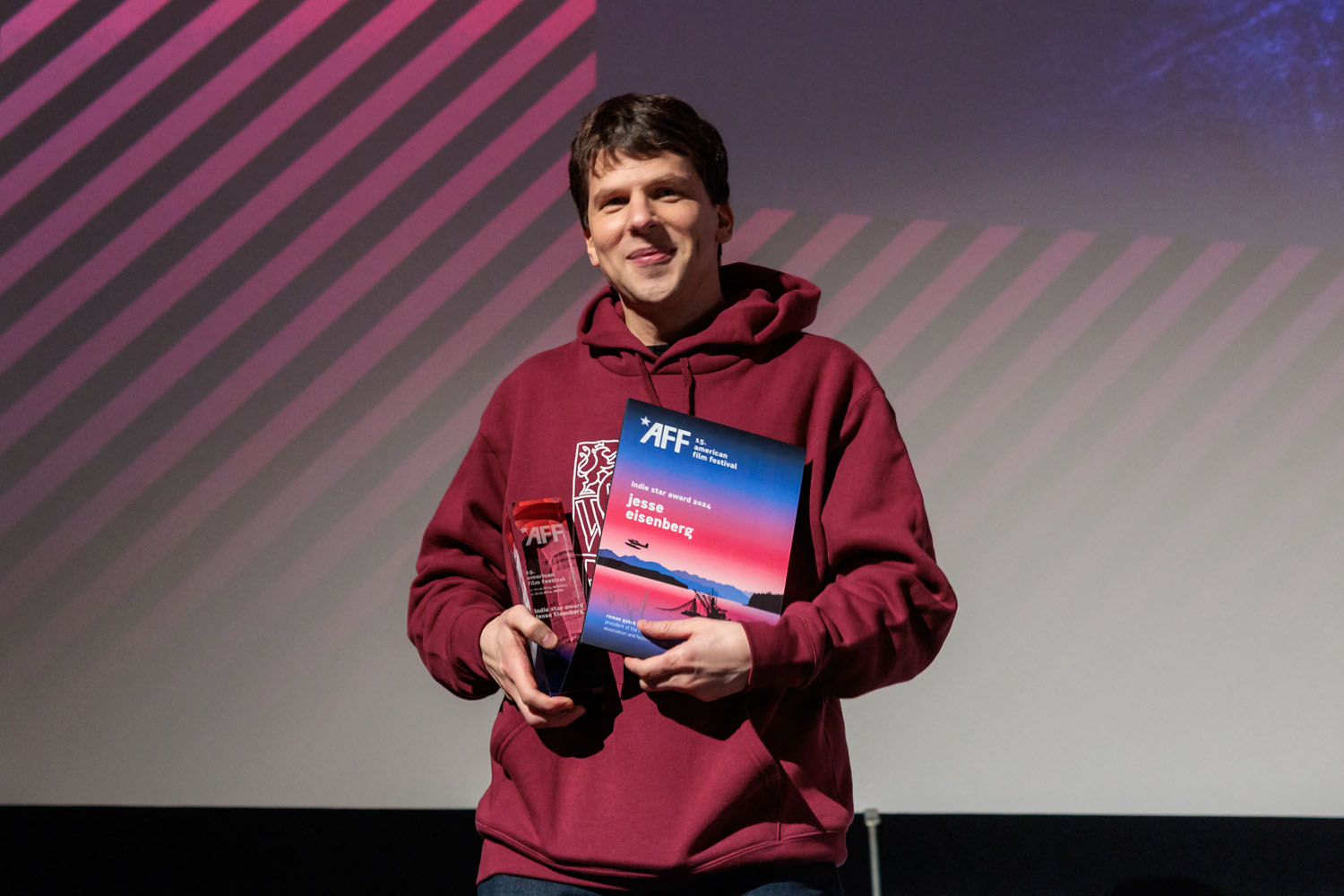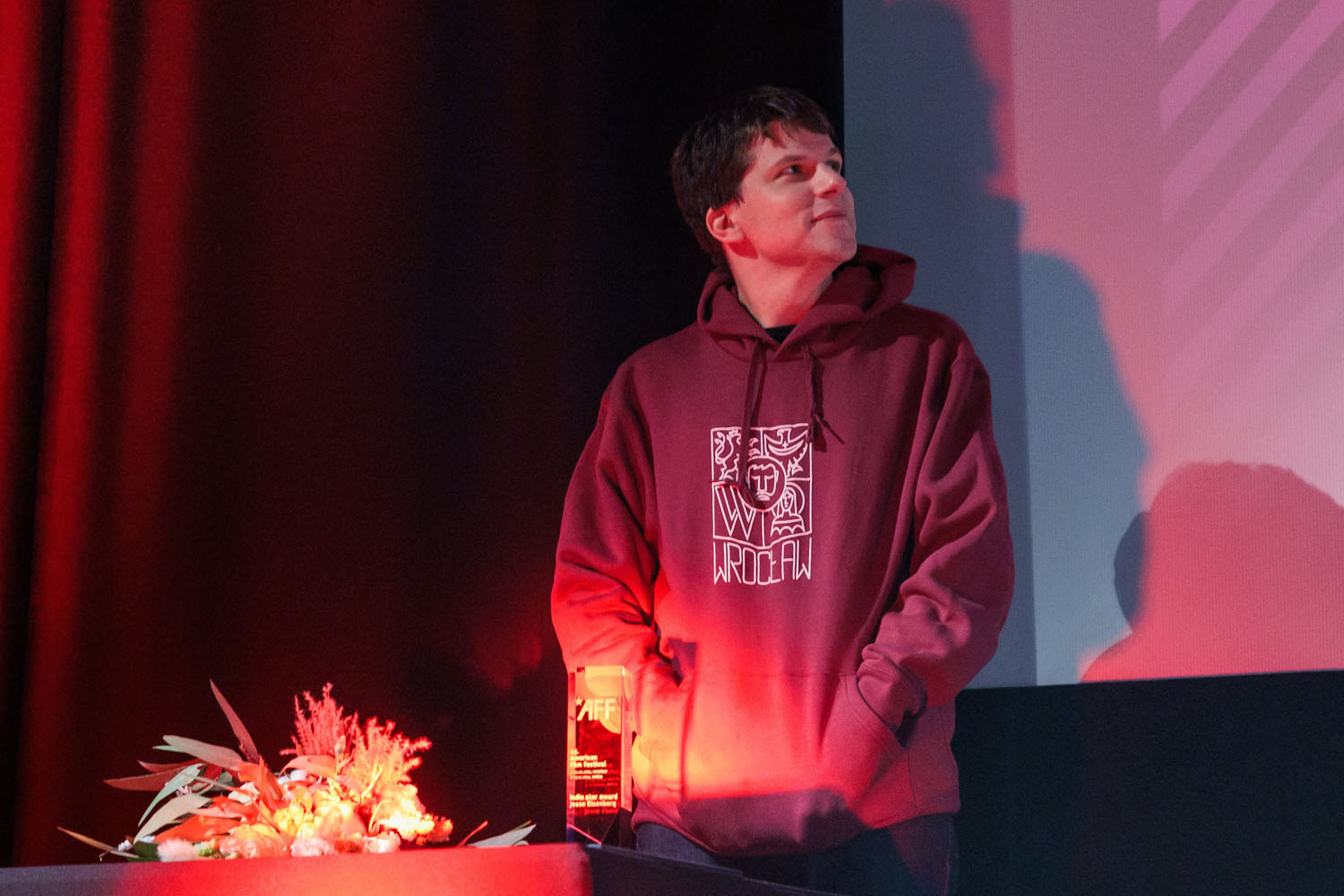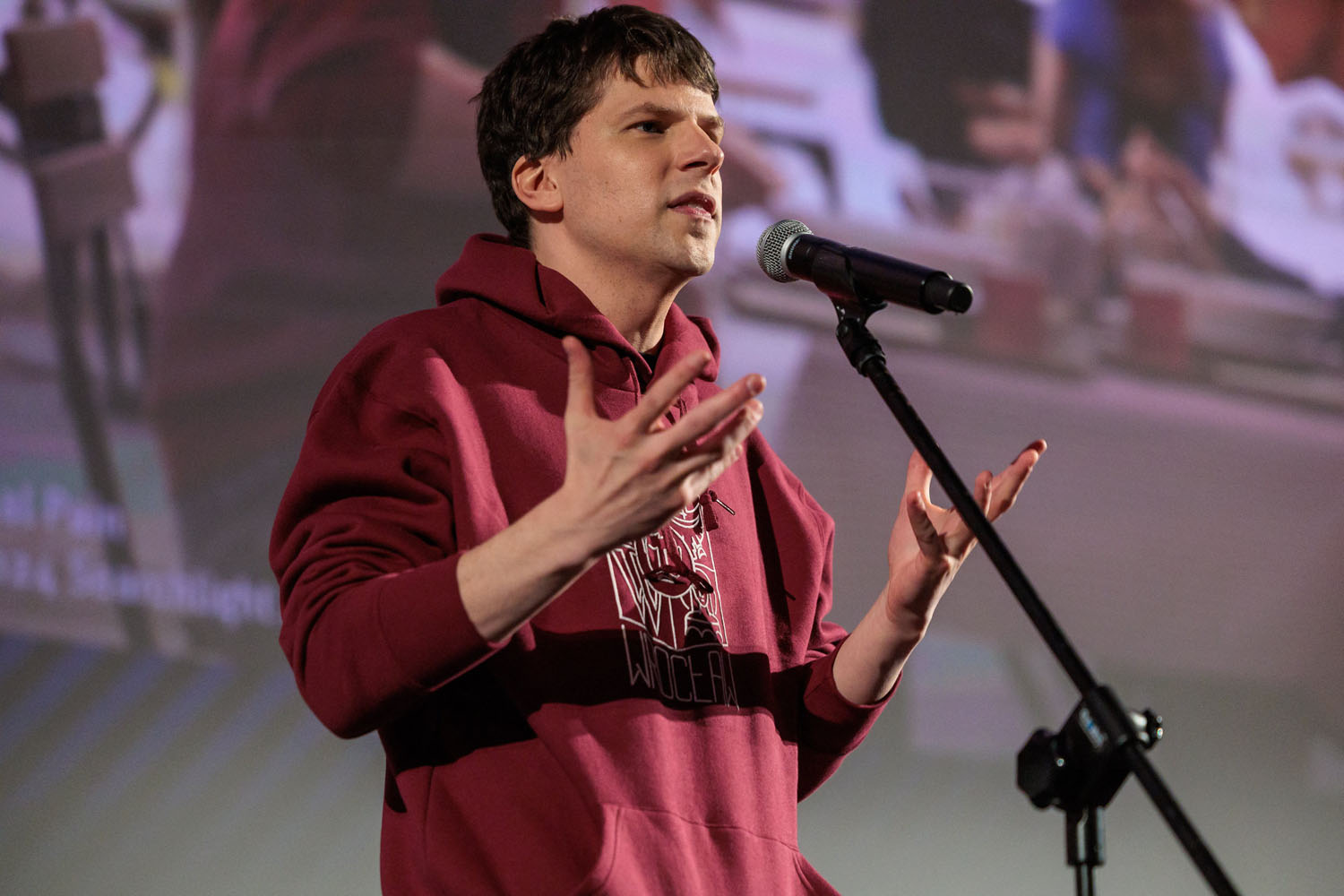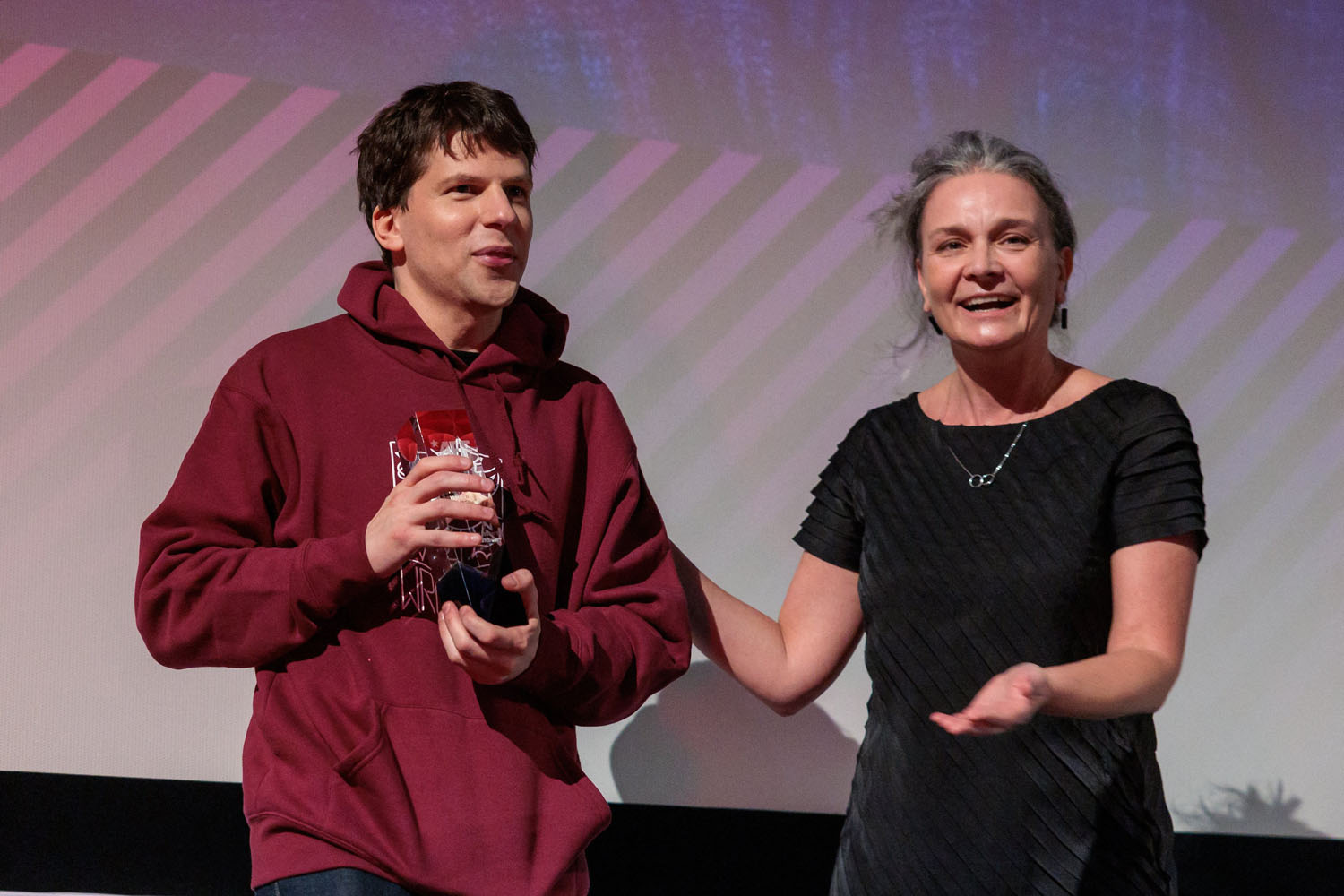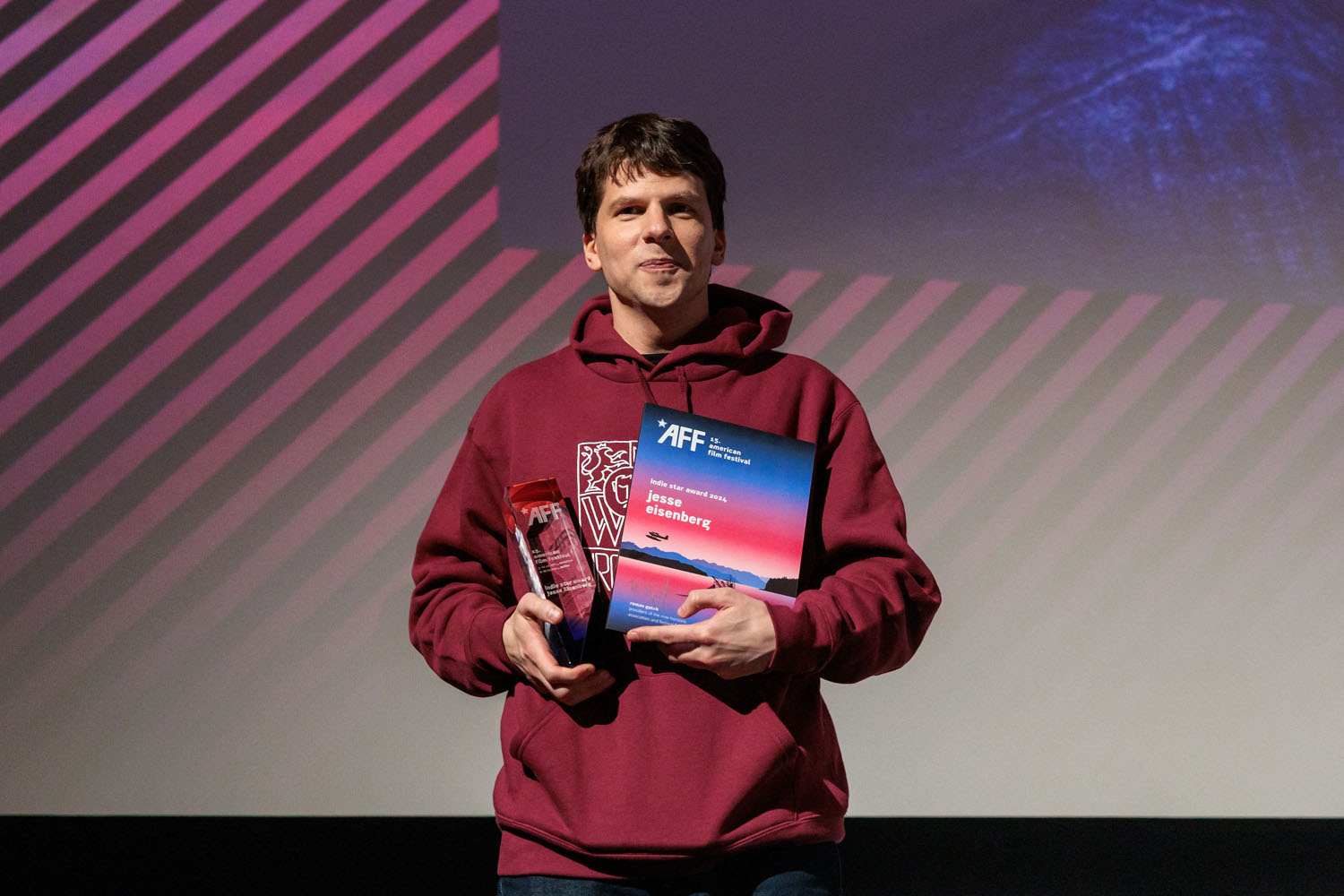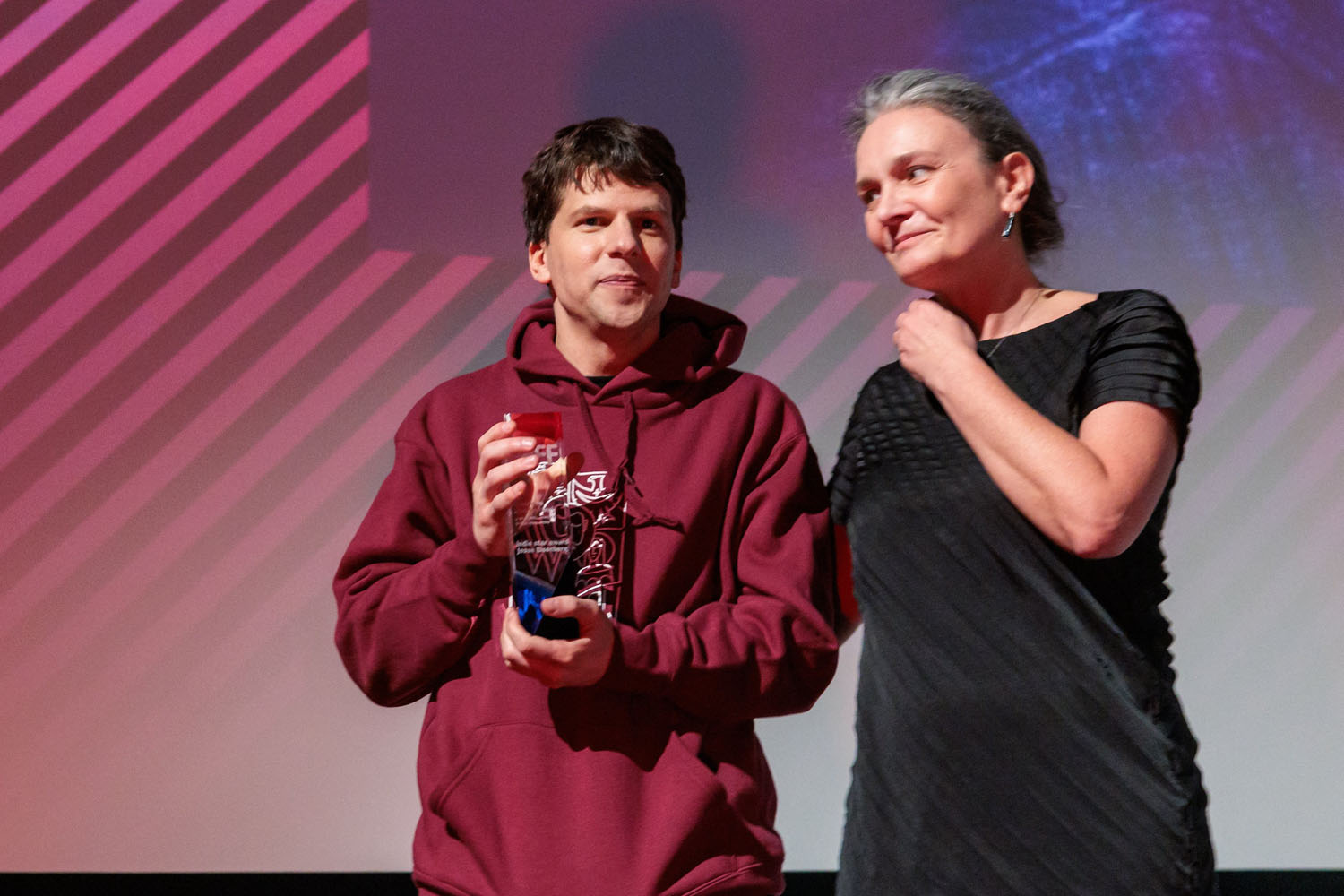Jesse Eisenberg and Kieran Culkin in A Real Pain



A Real Pain is a significant leap forward for Jesse Eisenberg: Filmmaker. His first feature film, When You Finish Saving the World, is the kind of navel-gazing drama you might expect from an actor known for playing uptight, even neurotic characters. A Real Pain, in contrast, has an intimacy and depth that leads to real vulnerability, even as Eisenberg stars as an uptight character.
The film centers on cousins David (Eisenberg) and Benji (Kieran Culkin), who were raised essentially as brothers, but have drifted apart in adulthood. David is a planner and a worrier, constantly phoning Benji to make sure he gets to the airport in time for an overseas trip…only to find Benji has been there for hours, vibing with his fellow travelers.
David and Benji are traveling to Poland to see their deceased grandmother’s childhood home, which she was forced out of during the Holocaust. They’ve signed up for a guided tour of Holocaust sites, led by the non-Jewish Brit James (Will Sharpe), and they’re joined by middle-aged divorcee Marcia (Jennifer Grey), middle-aged couple Mark and Diane (Daniels Oreskes and Liza Sadovy), and Eloge (Kurt Egyiawan), who converted to Judaism after finding community with Jews after escaping the Rwandan genocide. David and Benji are notably younger than everyone, except James, which creates an interesting dynamic amongst the group that is mostly untapped.
But that’s because Eisenberg devotes SO much of his film to David and Benji’s complicated relationship. They take turns being assholes, they love and hate each other, and a revelation in the second half of the film sheds some light on what brought the semi-estranged cousins back together. Kieran Culkin gets the best lines and showiest scenes, and he makes the most of them, giving a performance that is at once unhinged and very grounded in Benji’s specific loneliness and trauma. It’s easy to see the forces that draw people to Benji, but it’s just as easy to see the forces that made David get out of his blast radius.
Where A Real Pain really shines, though, is in its writing. Eisenberg won the Waldo Salt Screenwriting Award at Sundance for this film, and it’s easy to see why. A Real Pain runs a tight ninety minutes, there is no wasted space. David and Benji are complex characters in a complicated relationship, and Eisenberg offers no pat solutions to their conflict, even as he deftly charts their reconnection in Poland. They bicker and push buttons and yet Benji notices small details about David, and David never stops worrying about Benji. There is as much care and affection between them as there is anger and hurt. Their relationship feels very real, because there are no big speeches or grandiose emotional moments, there is just a modicum of understanding that maybe mends a bit of their fences. It’s a very realistic portrayal of inescapable family dynamics and the relatives we love and hate in equal measures.
This is the kind of film, like Annie Baker’s Janet Planet, where “nothing happens”—except emotions. As big as Culkin’s performance can be, A Real Pain never loses its intimacy, the relationship between the cousins is a steady anchor amidst the larger context of Poland’s history during the Holocaust. There are moments where history overwhelms, but they’re grounded in the conflict between the cousins, which just makes the moments in which Eisenberg turns his camera on the remnants of horror even more impactful. Everything is anchored in pain—historical pain, personal pain, generational pain. But out of that pain comes healing, if only in fits and starts. A Real Pain isn’t interested in easy answers, and Jesse Eisenberg approaches his open-ended questions with a deep well of empathy and understanding, invested in the experiences of people beset by trauma and muddling through to the other side.
A Real Pain is now playing exclusively in theaters.
